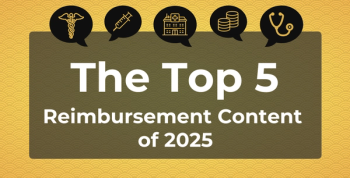
AJMC: Genetic Testing in Breast Cancer Has Economic Benefits, but More Real-World Studies Would Bolster the Case
A review of studies going back as far as 1981 shows that using genetic tests to diagnose and treat breast cancer helps save money, but with most research based on modeling, it's time for more support to gather data from real-world settings.
FOR IMMEDIATE RELEASE DECEMBER 19, 2013
AJMC: Genetic Testing in Breast Cancer Has Economic Benefits, but More Real-World Studies Would Bolster the Case
PLAINSBORO, N.J. — A review of studies going back as far as 1981 shows that using genetic tests to diagnose and treat breast cancer helps save money, but with most research based on modeling, it’s time for more support to gather data from real-world settings. (For the article, see contact below.)
Robert D. Lieberthal, PhD, representing the Jefferson Population Health Continuing Professional Education Collaborative, writes in the forthcoming issue of The American Journal of Managed Care that for multiple reasons, most research on the economic value of genetic testing in breast cancer relies on modeling rather than translational research. Models have merit but they also have limits, Leiberthal writes; with breast cancer costing the nation $13.9 billion a year, it’s time for the nation’s insurers and other payers of health care to demand financial support for gathering data from “real-world” settings.
Lieberthal’s article, “Economics of Genetic Testing for Breast Cancer,” cast a wide net to review available research on whether the cost of genetic tests — which average about $3,400 – are outweighed by the economic benefits of their use. The rise of specialized medicine allows clinicians to tailor treatment to the specifics of a woman’s breast cancer. This results in fewer adverse events, which can require their own treatment or hospitalization. One study pegged the cost of such events at $2,000 per patient, and that’s not counting the toll for those who suffer nausea or hair loss from being overmedicated.
More importantly, genetic tests can reveal which women need ongoing therapy after an initial bout of cancer to keep it from returning, and tests can determine what that treatment should be.
Lieberthal’s call for more “real-world” research on the economic benefits of testing gets to the heart of the quandary in medicine: Payers don’t want to cover tests or treatments that are unproven, but unless patients receive treatment, that proof is hard to come by. “The cooperation of multiple stakeholders will be essential if genomic medicine is to reach its full potential,” Leiberthal writes. “The barrier to progress for genomic medicine is the lack of empirical evidence for the clinical utility and value of genomic testing.” Thus, support for real-world studies, from either public or private sources, could not only increase the likelihood that insurers will pay for tests, but also improve the use of testing over time.
FOR INFORMATION CONTACT: Nicole Beagin or Mary Caffrey (609) 716-7777 x. 131 or 144
Newsletter
Stay ahead of policy, cost, and value—subscribe to AJMC for expert insights at the intersection of clinical care and health economics.








